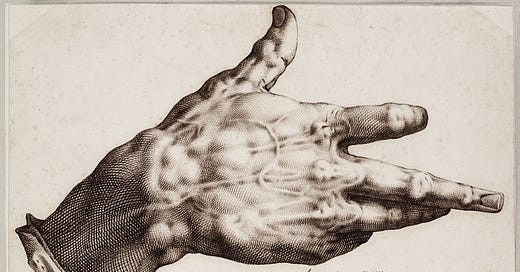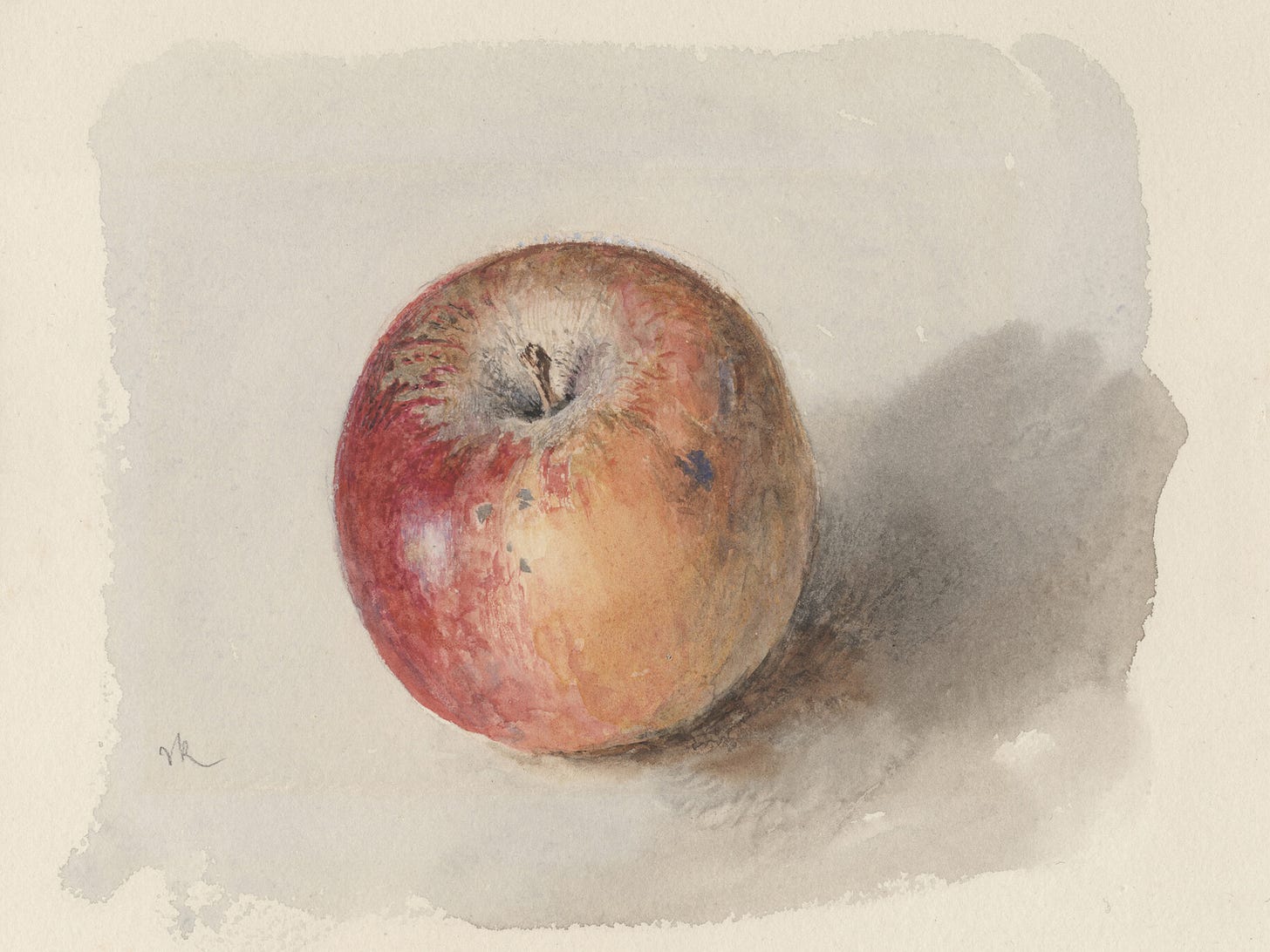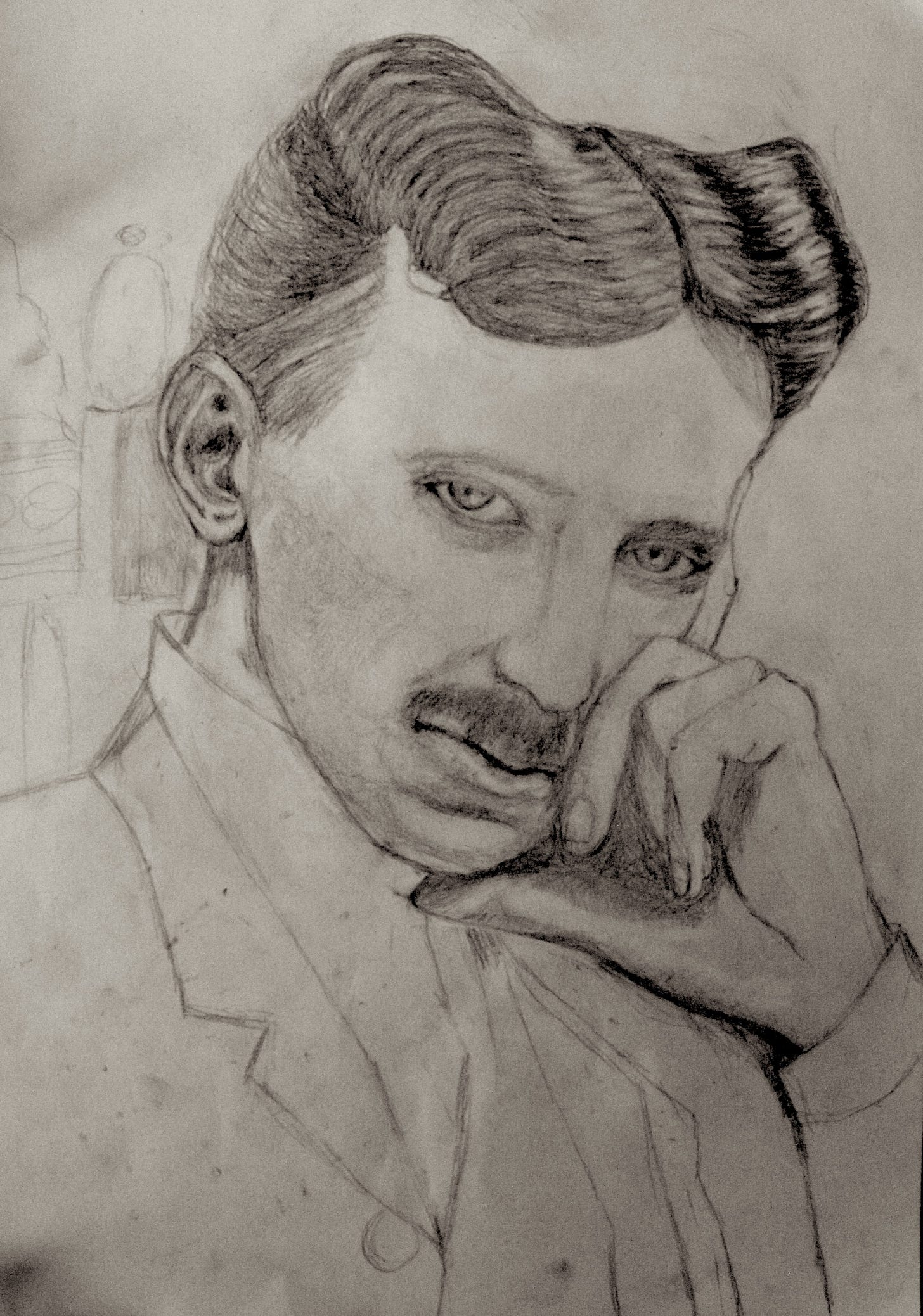I've grown weary of politics and news, so lately I’ve been mostly trying to focus on other endeavours. For instance, I've been practicing drawing and painting.
I think it is important to learn to draw and paint, especially in this age dominated by “AI” and digital stuff in general.
You may ask — why? Isn't it now, in the age of AI, an archaic, old-fashioned skill?
I think it is exactly the opposite. Drawing teaches you many things. Mainly, it teaches you to see (many people look, but do not see). It also teaches you patience and perseverance. Also, it allows you to create something real, and not just digital.
(In this sense, I am really old-fashioned, and I would also like to go back to writing with pen instead of on a computer, if I could, but, for now, a computer will have to do).
One of the best books about drawing is Elements of Drawing, by John Ruskin. It can be found online, and I can't praise it highly enough.
John Ruskin was not just a skillful writer and general polymath, he was also a very good artist.
Now, I have studied and practiced drawing since my childhood, but I was never very good at it. But now I think it was mostly because I never learned it the right way. True, I don't think I was born with a particular talent or gift for art, and of course I could never be a Leonardo or a Botticelli, but, as Ruskin says, you do not need to be necessarily talented to learn to draw:
Do not, therefore, think that you can learn drawing, any more than a new language, without some hard and disagreeable labor. But do not, on the other hand, if you are ready and willing to pay this price, fear that you may be unable to get on for want of special talent. It is indeed true that the persons who have peculiar talent for art, draw instinctively, and get on almost without teaching; though never without toil. It is true, also, that of inferior talent for drawing there are many degrees: it will take one person a much longer time than another to attain the same results, and the results thus painfully attained are never quite so satisfactory as those got with greater ease when the faculties are naturally adapted to the study. But I have never yet, in the experiments I have made, met with a person who could not learn to draw at all; and, in general, there is a satisfactory and available power in every one to learn drawing if he wishes, just as nearly all persons have the power of learning French, Latin, or arithmetic, in a decent and useful degree, if their lot in life requires them to possess such knowledge.
Yes, learning to draw, especially in its initial stages, can be boring and a lot of hard work; and part of my problem was just being too lazy to do the “hard work” part.
However, I think it's also that I never really understood before what drawing was all about. It was not until a brief course I took in Florence last year that something finally clicked for me, and I discovered that it was not so much about learning to draw lines and shapes, but more about learning to see things in terms of light and dark. That is, I think, the real essence of drawing and painting: it is not so much about the concrete, abstract shape of things, which, like Plato's perfect forms, do not exist in reality, but about how things are revealed and shaped by light.
Corrupted learning
One of the problems of modernity is that everything is corrupted. Even art schools. Many today don't even teach the basics of drawing and painting. I met a few “artists” that graduated from some of those schools, and they learned to do “installations” and “performances”, but they never learned to draw. It is as if a school of engineering didn't teach you math, or a school of medicine didn't teach you anatomy.
Just following two simple exercises from Ruskin's book — practicing different gradations of shading, and practicing drawing the outline of the shape of different types of plants — and those students would have learned more than they learned in four years at those “modern art schools”.
(I should note, however, that not all art schools are bad, and in many of them you still actually learn the traditional arts of painting and drawing, even if you later also learn all about “installations” and “performances". But many are bad.)
I think the main problem is that today “art” is not seen as a skill, which was the original meaning of the word “art”, but it is more about "self-expression”. It follows then that anything is seen as valuable as anything else, because, how can you criticize someone else's “self-expression"?
But art traditionally was not about “self-expression", but a practical skill in creating beautiful things. (Oh, how demodé, to talk about “beauty"in art — of course that hasn't been an objective of modern art at least since the 1930s).
I would go even further and say that the only real art is religious art. In most cultures art always begins with the representation of religious figures. The ancient Romans created sculptures of their gods and demigods, and even the Aztecs created objects and sculptures of their gods and demons. The medieval artists created beautiful Christian imagery, but even up to the Renaissance and the Baroque the best art was still always the religious art.
Sure, it helped that the Church was paying for it, as I mentioned in a previous article, and of course you also had portraits of kings, emperors or rich and powerful people, but it was rare that a portrait is as powerful and impacting as a great work of religious art. (And sometimes I think that art critics turned the “Mona Lisa” portrait into the most famous work of art just to downplay Leonardo's much better religious paintings).
But I digress.
Mainly what I wanted to say is that anyone can learn to draw, and that it is a useful skill to have, even in this day and age, or mainly in this day and age.
Also, that in drawing there is only one real rule, which also applies to anything else, and it is: practice, practice, practice. That's really all there is to it. The more you practice, the better you get. (Okay, I am not sure if this applies to everything, and yes, there is such a thing as genius and natural talent, but it does apply to drawing, at least, up to a point).
I would add that the same applies to any other skill, such as writing, or playing a musical instrument, but alas, there is not time enough in life to learn everything, and therefore one must sometimes choose. But I promise that, if I ever manage to become reasonably competent or satisfied with my level of drawing and painting, my next endeavour, if I live long enough, will be to learn to play the piano — and my neighbours ears’ be damned.
Then, perhaps, I will proceed to learn to write well, producing captivating texts that can catch the readers’ attentions and obtain millions of followers.







"...the only real art is religious art..."
Interesting comment in light of religions that treat the appreciation of art work as a form of idol worship. That speaks to our inherent incompatibility with such groups.
Thank you for the link to Ruskin's book! I hope to read it before you start learning to play the piano.
I think it also has to do with, what you're planning to do with your art. For example in comic art you have to consider your line weights, which are determined by the light. Comic art is about clarity and readability, so a lot of it has to do with contrast and controlling your black and whites and sometimes grey tones. There also a bit more exaggeration in character poses because a natural pose might not read as well as graphically. But this is mostly if your going for art as entertainment.
I would concur that not all art schools are created equally, my school was definitely better than my first. They actually taught the fundamentals and I had a great comics teacher, he spoke a lot about the storytelling of the page, clarity, perspective, anatomy and consistency.
John Ruskin is an interesting fellow, I need to read more of his books. I illustrated a piece of his writings for a class project. "For the sky is covered with gray cloud;-not rain cloud but a dry black veil which no ray of sun can pierce: partly diffused in mist, feeble mist, enough to make distant objects unintelligible, yet without any substance, or wreathing, or color of its own." John Ruskin, The storm Cloud of the Nineteenth Century,
I still have a lot to learn myself, art is a continual journey. Love the new direction of the channel.